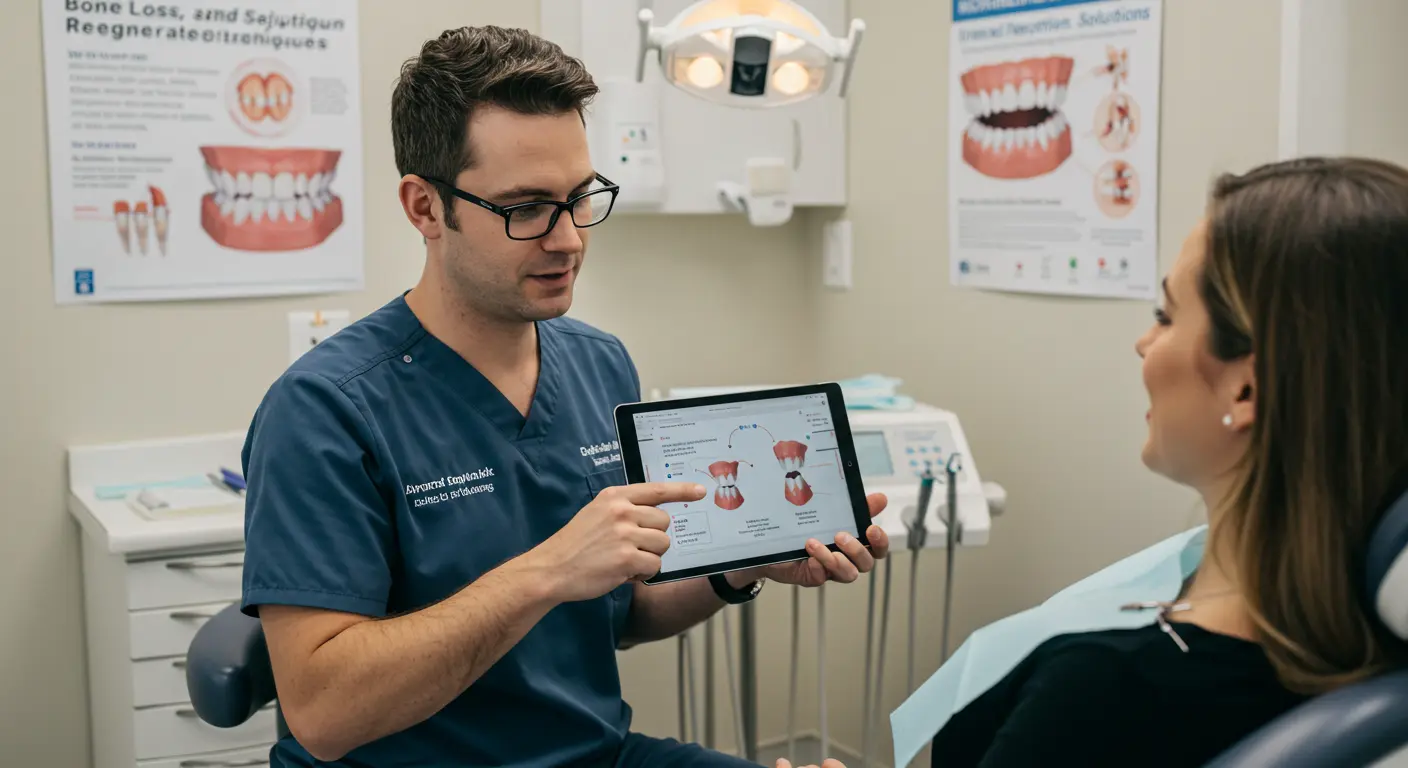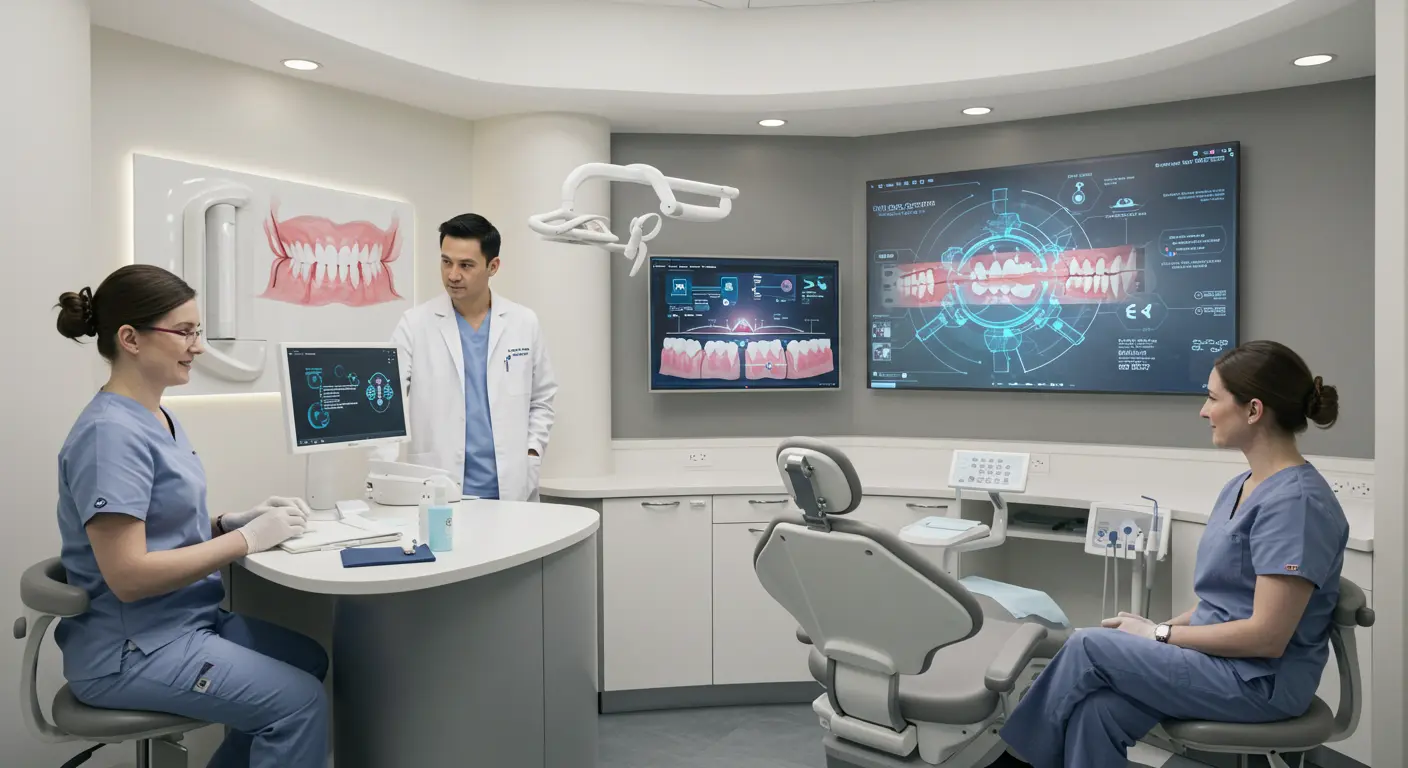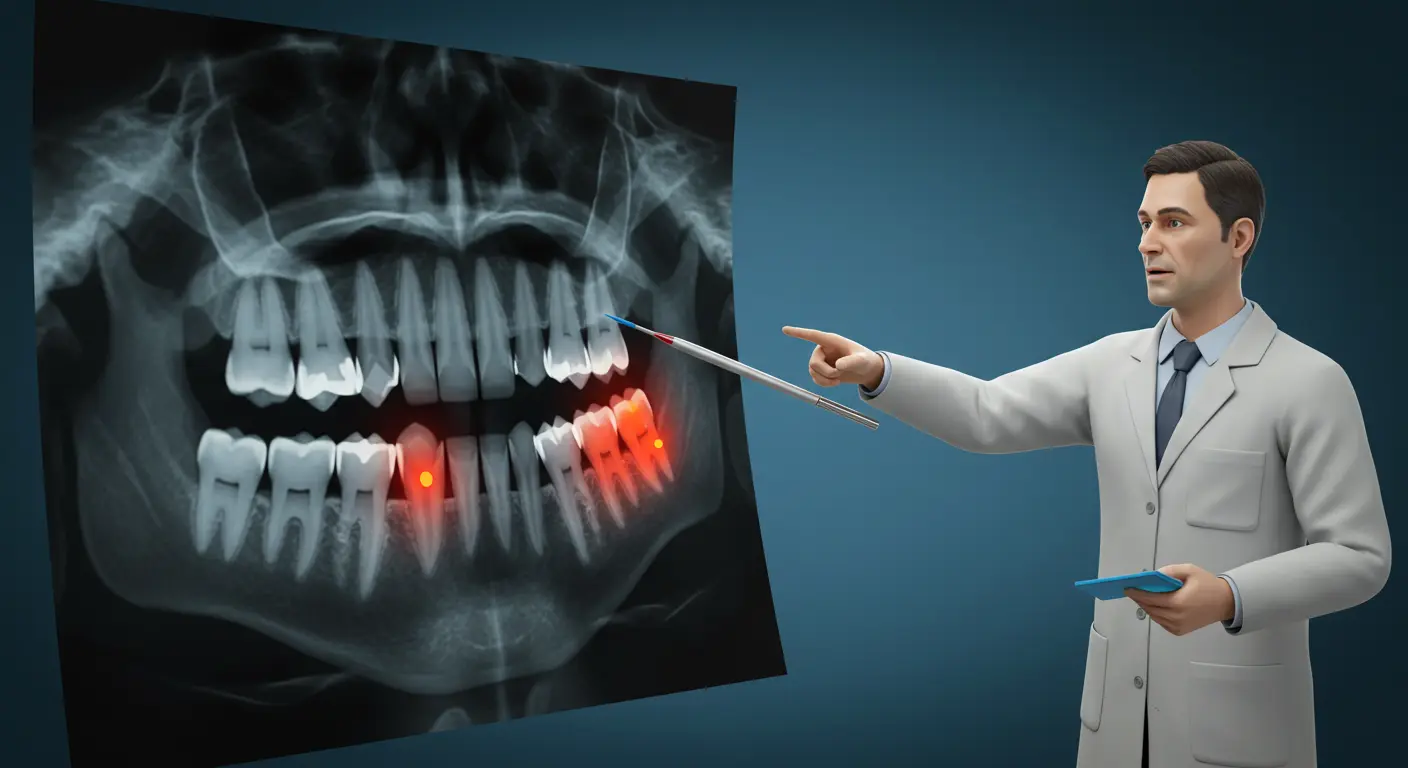Are Dental Implants Right for Me with Bone Loss?
Are dental implants right for me with bone loss? This is a common question that resonates with many who are considering dental implants but are worried about the impact of bone loss on the success of their procedure. In this comprehensive guide, we’ll explore every aspect of dental implants in relation to bone loss, offering you the insights you need to make an informed decision about your oral health. Whether you’re struggling with periodontal disease, missing teeth, or simply facing the natural effects of aging, this article will provide clear, persuasive, and SEO-optimized information that puts your concerns front and center.

Understanding Dental Implants
Dental implants have revolutionized restorative dentistry by offering a permanent solution for missing teeth. Dental implants are titanium posts surgically inserted into the jawbone, which then fuse with the bone over time—a process known as osseointegration. Once securely in place, these implants provide a stable foundation for custom-made crowns, bridges, or dentures that look and function like natural teeth.
Dental implants are more than just replacements; they help maintain jawbone integrity and prevent further bone loss. With the right candidate, they provide long-term durability, improved function, and enhanced aesthetics.
What is Bone Loss?
Bone loss in the jaw can occur for a variety of reasons, including:
Periodontal Disease: Infections that destroy the supporting tissues of the teeth.
Tooth Loss: When a tooth is missing, the bone that once supported it can deteriorate over time.
Trauma or Injury: Accidents can lead to bone damage.
Aging: Natural reduction in bone density as part of the aging process.
When discussing bone loss, it’s crucial to understand that the quality and quantity of the jawbone directly affect the success of dental implant procedures. Insufficient bone density may lead to implant failure if not properly addressed.
The Relationship Between Bone Loss and Dental Implants
Are dental implants right for me with bone loss? This is a multifaceted question that involves understanding how bone loss affects implant placement and stability. The success of dental implants relies heavily on a strong, healthy jawbone that can support the implant. When significant bone loss has occurred, the following challenges may arise:
Implant Stability: A compromised bone may not provide the necessary support for osseointegration, risking implant mobility and eventual failure.
Surgical Complexity: Procedures become more complex, often requiring additional interventions like bone grafts or regenerative techniques.
Longer Healing Time: The body might take longer to heal, as it attempts to integrate the implant with the weakened bone.
However, advancements in implant dentistry have provided innovative solutions to overcome these challenges. Through a careful evaluation by your dental professional, even patients with bone loss can be considered candidates for dental implants.
Evaluating Your Candidacy: Are Dental Implants Right for Me with Bone Loss?
Deciding if dental implants are right for you with bone loss involves several steps. It’s crucial to have a thorough evaluation that includes a detailed dental and medical history, clinical examination, and diagnostic imaging (such as X-rays or CT scans). Here are some key factors considered during this evaluation:
Bone Density and Volume: A CT scan can determine if your jawbone has enough density to support an implant.
General Health: Conditions like diabetes or osteoporosis can influence bone healing and implant success.
Oral Hygiene: A commitment to maintaining excellent oral hygiene is critical for the longevity of any implant.
Lifestyle Factors: Smoking and excessive alcohol consumption can impair healing and increase the risk of implant failure.
Your dentist or oral surgeon will consider these factors to determine whether you are a good candidate for dental implants or if alternative treatments might be more suitable.
Treatment Options and Innovations
When facing bone loss, modern dentistry offers several advanced techniques to enhance the success rate of dental implants. These treatments are designed to rebuild or augment the jawbone, ensuring a strong foundation for implant placement.
Bone Grafting and Regenerative Techniques
Bone grafting is one of the most common procedures used to address bone loss. During a bone grafting procedure, bone (or a synthetic bone substitute) is transplanted into the deficient area. Over time, the graft integrates with the natural bone, creating a more robust and stable structure for an implant. Some of the most common grafting techniques include:
Autografts: Bone taken from another part of your own body.
Allografts: Donor bone from a cadaver, processed and sterilized for use.
Xenografts: Bone sourced from animals, typically bovine, which is then processed for human use.
Synthetic Grafts: Man-made materials designed to mimic natural bone.
These techniques have significantly improved the candidacy for dental implants among patients with bone loss. In some cases, regenerative procedures may be combined with platelet-rich plasma (PRP) therapy to enhance healing and integration.
Alternative Implant Solutions
For patients with extensive bone loss where traditional implant methods might not be feasible, alternative options exist:
Mini Dental Implants: These are smaller in diameter and can sometimes be used in areas with less bone density.
Zygomatic Implants: For cases of severe bone loss in the upper jaw, these longer implants anchor into the cheekbone (zygoma) instead of the maxilla.
All-on-4® or All-on-6® Implants: These procedures involve placing four or six implants to support a full arch of teeth, often requiring less bone density due to strategic angulation and placement.
Each of these alternatives is tailored to meet the unique needs of patients dealing with bone loss, ensuring that they can still enjoy the benefits of modern dental implant technology.
Benefits of Dental Implants Despite Bone Loss
Even for those concerned about bone loss, dental implants offer a host of benefits that can significantly improve quality of life. Some of these advantages include:
Enhanced Chewing Efficiency: Dental implants restore full chewing function, allowing you to enjoy a wide variety of foods without discomfort.
Improved Aesthetics: They provide a natural-looking solution that can boost self-confidence.
Bone Preservation: Unlike dentures, implants stimulate the jawbone, which can help prevent further bone deterioration.
Durability and Longevity: With proper care, dental implants can last for decades, making them a cost-effective solution over time.
No Impact on Adjacent Teeth: Unlike bridges, dental implants do not require the alteration of neighboring teeth, preserving your overall dental structure.
Dental implants are a life-changing solution, even when bone loss is a concern. They not only restore functionality but also contribute to improved overall oral health by maintaining bone density.
Expert Opinions and Patient Experiences
Expert Opinions
Dental professionals have noted the remarkable progress in implant dentistry over the past decade. Experts in implantology stress the importance of individualized treatment plans. They advocate for the use of advanced imaging and digital planning to ensure precision in implant placement—even in cases complicated by bone loss. According to recent studies and clinical guidelines:
Comprehensive Assessment: Dentists emphasize the need for a thorough evaluation to determine the extent of bone loss and the feasibility of various grafting or implant techniques.
Innovative Solutions: With the advent of cutting-edge regenerative techniques, many patients who were once considered unsuitable candidates are now receiving implants with great success.
Long-Term Success: Ongoing research and patient follow-ups show that when proper procedures are followed, the success rate of implants in patients with bone loss is comparable to those with healthy bone.
Patient Experiences
Patient testimonials reveal a high level of satisfaction with dental implants, even among those who initially struggled with bone loss. Many patients report that the combination of bone grafting and modern implant techniques has restored not only their smile but also their confidence and quality of life. Here are some common themes from patient feedback:
Transformation: Many patients express that dental implants have dramatically improved their ability to eat and speak normally, significantly enhancing daily living.
Comfort and Fit: Unlike removable dentures, implants feel like natural teeth, providing comfort and stability.
Emotional Impact: The restoration of a natural smile has had a profound impact on self-esteem and overall mental well-being.
These experiences underscore the transformative power of dental implants, making them a worthwhile consideration even if you have experienced bone loss.
Maintaining Long-Term Success
After deciding to pursue dental implants, especially in the context of bone loss, long-term success hinges on several factors. Adhering to a strict oral hygiene routine and regularly visiting your dentist for follow-up appointments are critical for ensuring that your implants remain healthy and stable. Consider these best practices for maintaining the longevity of your dental implants:
Regular Dental Check-Ups: Frequent monitoring can help detect any early signs of complications.
Proper Oral Hygiene: Brushing, flossing, and using an antiseptic mouthwash are essential to prevent infection.
Avoiding Harmful Habits: Reducing or eliminating smoking and limiting alcohol consumption can improve healing and implant survival.
Healthy Diet: A balanced diet rich in calcium and vitamin D can support bone health and overall oral function.
Customized Maintenance Plans: Work with your dental professional to create a maintenance plan that addresses your unique needs, especially if you’ve undergone additional procedures like bone grafting.
By following these guidelines, you can help ensure that your investment in dental implants pays off in terms of both functionality and aesthetics.
Navigating the Decision: Are Dental Implants Right for Me with Bone Loss?
The decision to pursue dental implants when you have bone loss is not one to be taken lightly. It involves a thoughtful evaluation of your oral health, a clear understanding of the available treatment options, and a commitment to long-term care. Here are some key takeaways to consider:
Customized Treatment: Every patient’s situation is unique. Your dentist will design a treatment plan that considers the severity of your bone loss and your overall health.
Advanced Technology: With modern imaging, digital planning, and regenerative techniques, the landscape of dental implantology has evolved to include patients who might have previously been deemed unsuitable.
Proactive Management: If you’re facing bone loss, early intervention is critical. Addressing bone deterioration proactively can improve your chances of a successful implant procedure.
Collaborative Decision-Making: Engage in open and honest discussions with your dental care team. Ask questions, express your concerns, and ensure that you fully understand the benefits and potential risks associated with dental implants.
Ultimately, the answer to “Are dental implants right for me with bone loss?” depends on a comprehensive evaluation and a tailored treatment approach designed to give you the best possible outcome.
Final Thoughts: Embracing a Brighter Smile
Dental implants have the potential to completely transform your life—even if you’re battling bone loss. By incorporating state-of-the-art technologies and personalized treatment plans, modern dentistry has made it possible for patients with compromised jawbones to regain a functional, attractive smile. The journey to improved oral health begins with a single step: consulting with a trusted dental professional who can guide you through the intricacies of your unique situation.
In summary:
Are dental implants right for me with bone loss? They can be, if you receive the proper assessment and treatment.
Innovative procedures, like bone grafting and alternative implant methods, have expanded the pool of candidates.
Long-term benefits include improved functionality, enhanced aesthetics, and overall better quality of life.
By understanding the full spectrum of options and advancements available, you can confidently explore dental implant solutions that address both your aesthetic desires and functional needs.
Frequently Asked Questions
Q1: What causes bone loss in the jaw?
Bone loss can be caused by periodontal disease, tooth loss, trauma, or the natural aging process. Each of these factors weakens the jawbone, potentially affecting dental implant stability.
Q2: Can bone grafting help me qualify for dental implants?
Yes. Bone grafting is a well-established procedure that rebuilds the jawbone, making it possible for many patients with bone loss to receive dental implants successfully.
Q3: Are there alternatives to traditional dental implants if I have significant bone loss?
Absolutely. Options such as mini dental implants, zygomatic implants, and the All-on-4® or All-on-6® techniques provide alternatives for patients with reduced bone density.
Q4: What can I do to maintain my implants over the long term?
Maintaining excellent oral hygiene, scheduling regular dental visits, and adopting a healthy lifestyle are crucial for the long-term success of dental implants.
Conclusion
In the modern landscape of dental care, the question, “Are dental implants right for me with bone loss?” no longer has a one-size-fits-all answer. With the integration of advanced diagnostic techniques, innovative regenerative treatments, and customized treatment plans, patients with bone loss now have access to effective and long-lasting dental implant solutions.
Dental implants are not just a cosmetic fix—they are a strategic investment in your overall health. By preserving jawbone integrity, improving chewing efficiency, and enhancing your smile, they offer a transformative impact that reaches far beyond the aesthetics.
If you are considering dental implants but are concerned about bone loss, consult with a dental professional who can offer a detailed evaluation and discuss all possible options tailored to your needs. Embrace the future of dental technology, and take the confident step toward restoring not only your smile but your quality of life.
Your journey towards a brighter, healthier smile begins today. Remember: every successful dental implant case starts with understanding the process, evaluating your unique condition, and committing to long-term oral health care.

By leveraging the latest in dental innovation and personalized care, you can find the answer to “Are dental implants right for me with bone loss?” and step into a future where your dental health is both resilient and radiant. This comprehensive guide is designed to empower you with the knowledge to make the best decision for your smile, ensuring that even the challenges of bone loss are met with state-of-the-art solutions and compassionate care.
Take the first step towards a new you by scheduling a consultation with your dental expert. Your dream smile awaits—strong, stable, and confidently restored.










